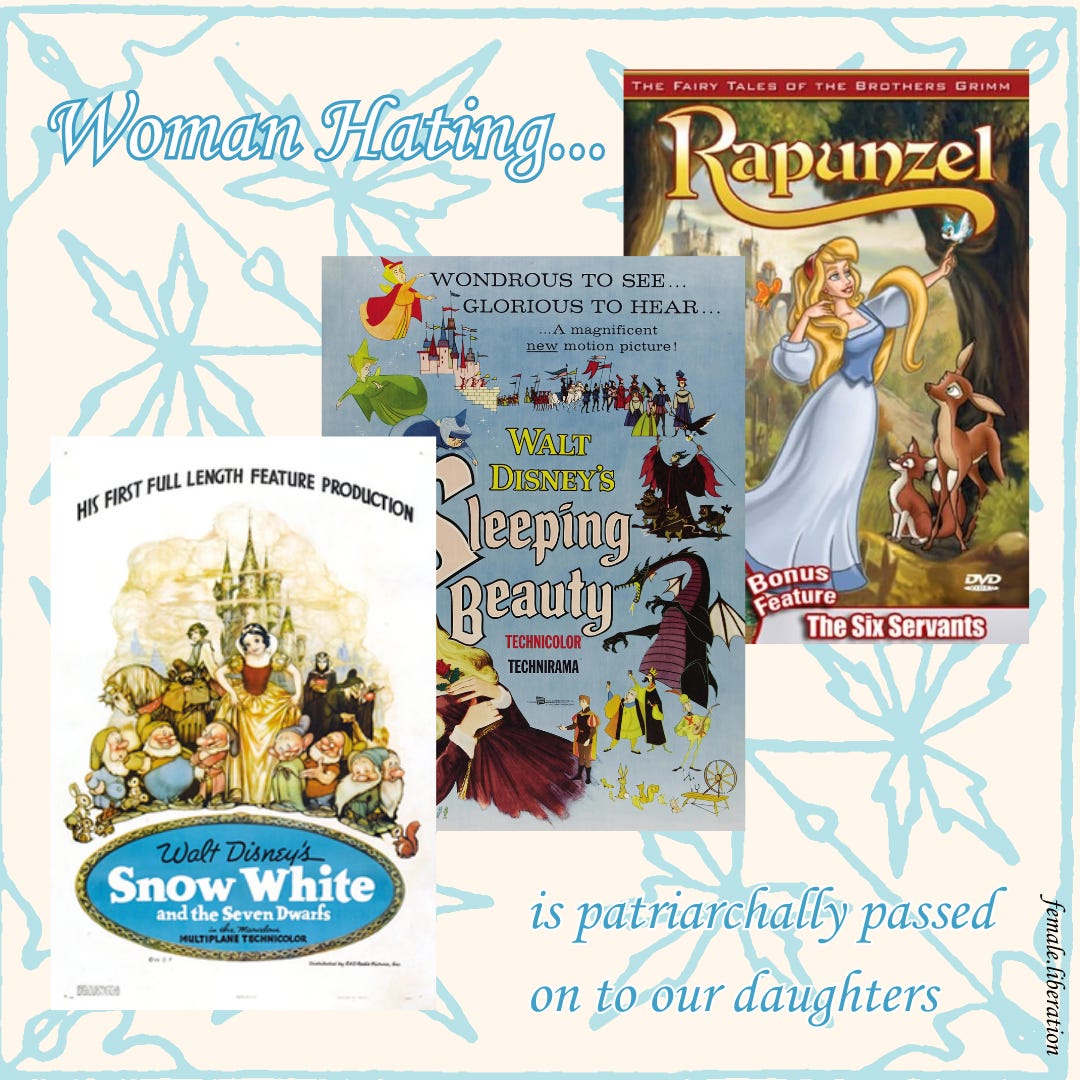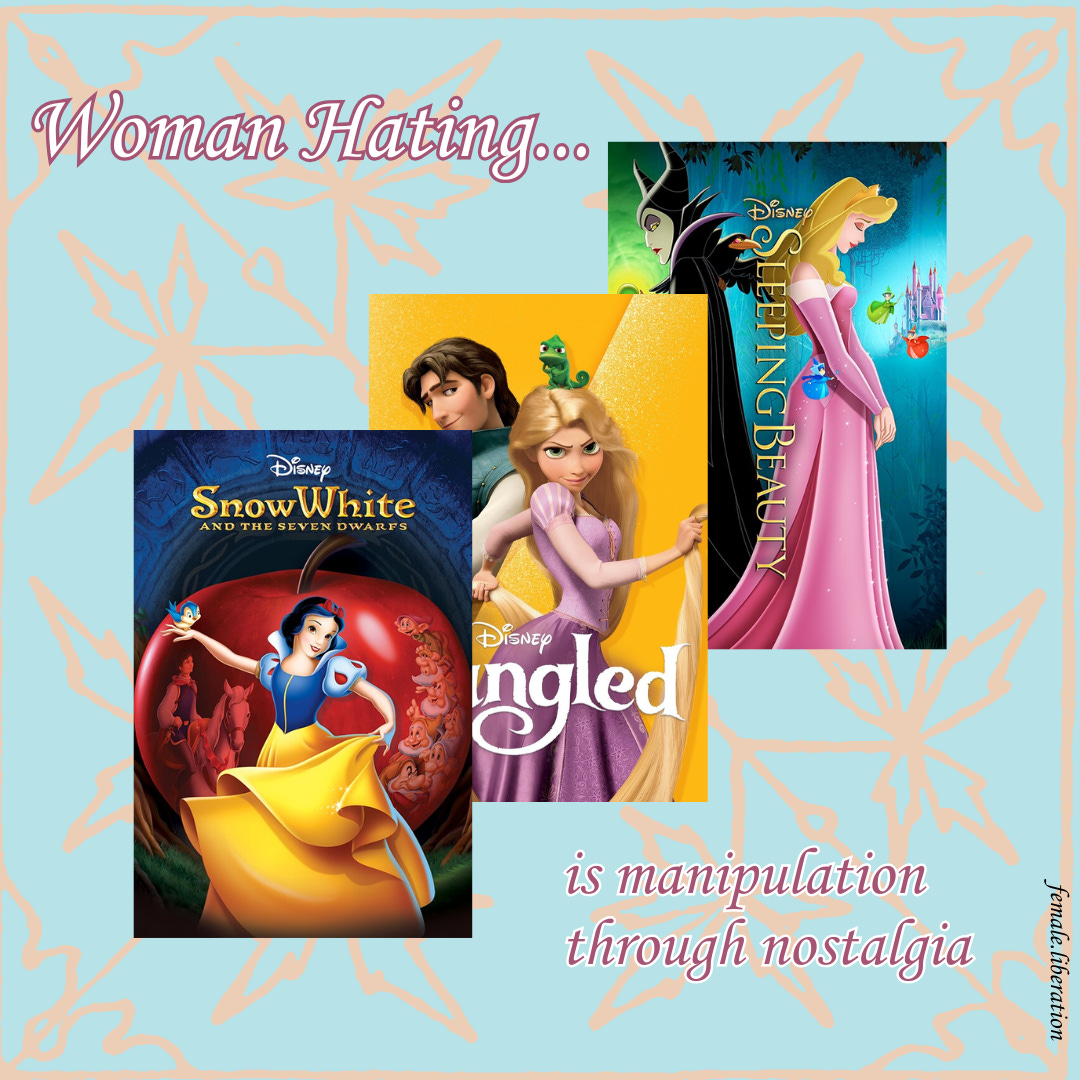I’ve been rereading Woman Hating by Andrea Dworkin and each part inspires visual creations (click on the link to access a PDF of the book from The Feminist Archive). I’m currently focused on Part One: The Fairy Tales. It led me to gather images of three popular fairy tales: Rapunzel, Sleeping Beauty, and Snow White, from their original source, The Brothers Grimm, to the rewrites by Disney. I’m interspersing those images with the words of Andrea Dworkin. Younger radical feminist women have shown me the power of meme art. I used to judge it, partly because of my weariness of truncating information into bite-sized pieces. I do think memes can affect our critical thinking and cognitive processes if the viewer develops a distaste for long-form content. As our lives are further intertwined with social media, we see the impact on our ability to pay attention, absorb, and think. Yet there is a power in these memes within feminist spaces that is exciting to me. I also love how digital collage is utilized to create memes.
I see young women and girls trading memes on radical feminist discourse the way kids used to trade Baseball and Pokémon cards. Young and old alike, we have all lost our ability to focus due to the never-ending technological distractions. This was true when I was spending hours on end playing Atari, Nintendo, Gameboy, or watching TV, and it’s true today as the majority of Americans spend their day glued to their laptop or smartphone. We’re up against male-dominated corporations that would rather make money than concern themselves with the societal impact of technologies. Yet through all of this, I see women and girls finding ways to make the best of short-form content. Sometimes I encounter a meme that is a snippet from reddit, and the words of that girl are the stuff of genius. I imagine a world where her talent is given space to flourish. So many “Andrea Dworkin’s” exist in these memes and comment sections.
Andrea Dworkin’s chapter entitled “The Fairy Tales” in her book Woman Hating analyzes the male supremacist roots of these stories. Like many American girls, I grew up with these books and movies. As an adult, I watched all the remakes and even believed that some were an improvement. Male supremacy kept my bar so low, I was thankful for any level of supposed “representation.”
I have a habit of rewatching shows and movies over and over again. Rewatching removes the haze of nostalgia, and I’m forced to analyze content clearly. I’ve finally reached a place where I have no desire to consume these fairy tales, no matter what mainstream changes are made to them (unless I’m attempting a content analysis). There might be rewrites that turn these stories on their head, but they’re not the versions mainstream producers like Hollywood will invest in. It’s not the versions our daughters will ever watch or read. Goldenbooks isn’t publishing feminist alternatives to these stories. If that were the case, maybe I could look forward to remakes. For now, I aim to reduce my support of these stories by decreasing my viewership. I don’t want to be complicit in the male supremacist propaganda of fairy tales.
Have you encountered good radical feminist rewrites of fairy tales? If so, please share them in the comments so we can help promote remakes that dismantle the oppressive nature of these stories.
A series on fairytales inspired by Andrea Dworkin’s “Woman Hating"
#fairytales
#andreadworkin
#memeart
#feministart
#MalesSexualizeOurGirlhood
#GendersTroubled











Thank you, I didn't know her and thanks to your post I found her work and will be reading! Fairy tales are cancerous and brain wash young girls to center men!